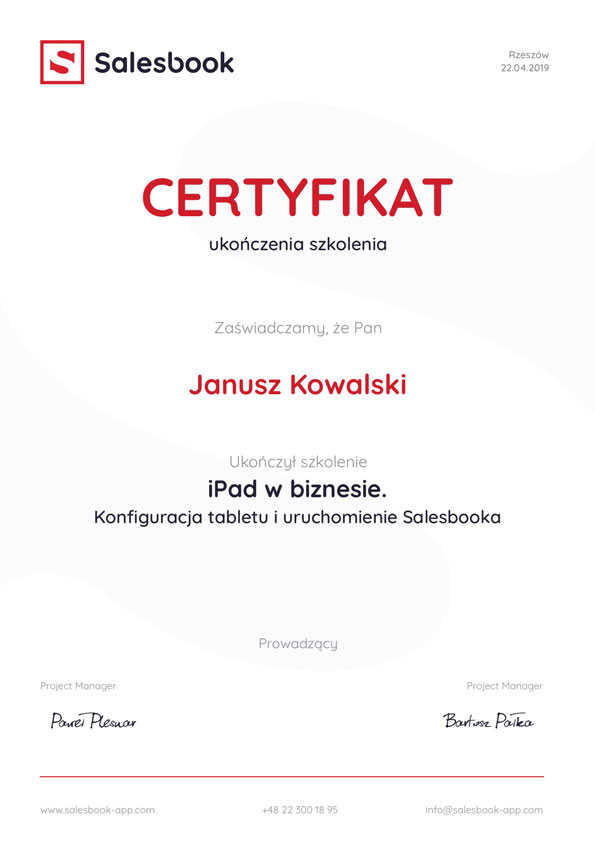

Sales
Uncategorized

9 Jan 2024
In a highly competitive marketplace, leveraging technology to streamline and automate business processes is no longer an option – it’s a necessity. Sales Force Automation (SFA) plays a crucial role in this paradigm shift.
Sales Force Automation (SFA) has risen to become an indispensable part of business management, as businesses of all sizes grapple with large volumes of data. The IDC report suggests that the world will handle an estimated 175 Zettabytes of data by 2025, presenting an incredible challenge and opportunity for sales teams.
Sales and technology, once siloed domains, have been brought together by the advancements in sales force automation software. Platforms like Salesbook provide the necessary tools for sales teams to access and interpret customer data, track sales trends, and manage customer interactions seamlessly.
They also empower sales reps to perform sales activities in real-time, providing an efficient bridge between sales and technology.
At the heart of this is the Customer Relationship Management (CRM) system embedded within the SFA software, enabling sales reps to handle and monitor customer interactions, bolstering customer satisfaction.
Companies like Cisco have seen a 26.4% increase in sales productivity by leveraging these platforms, which provide the backbone for their sales process.
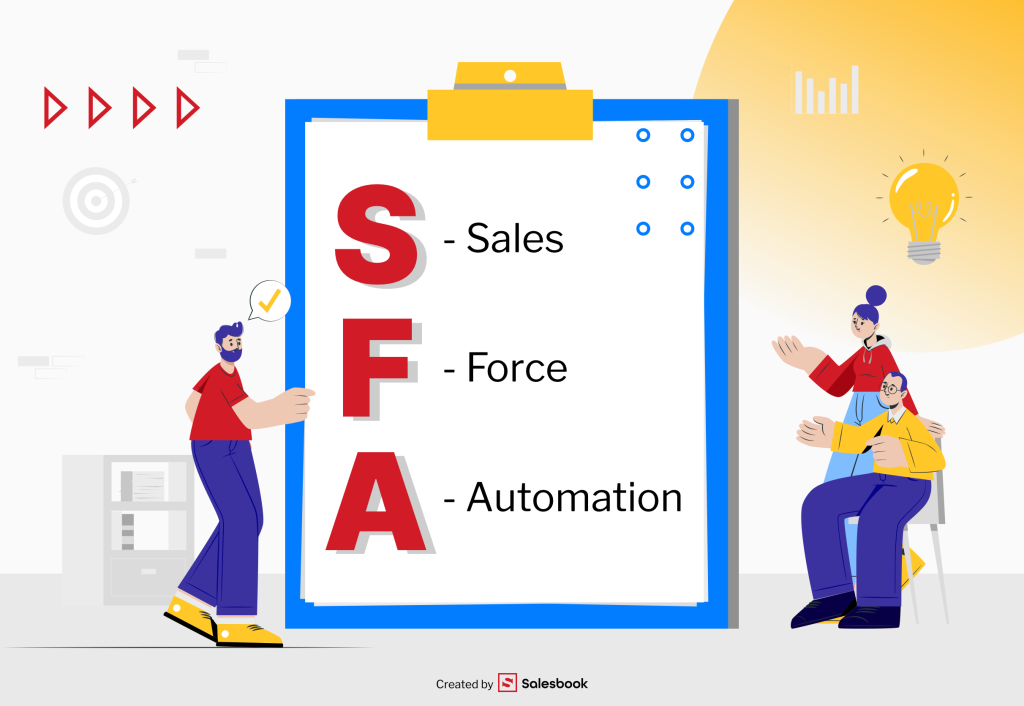
The function of Sales Force Automation in business is to streamline the sales process, a task it accomplishes through a range of features. Core features include Contact Management for tracking customer interactions, Lead Management for following potential customers through the sales funnel, and Sales Forecasting for predicting sales based on historical data.
A study by CSO Insights found a 10.2% increase in the closure rate for businesses using sales force automation tools for sales forecasting. SFA software may also include task management for tracking routine and administrative tasks, and Inventory Management, all while providing robust sales reporting and analytics.

Advanced platforms may even offer AI-driven insights, integration with other software tools like e-mail marketing software, and mobile accessibility, greatly benefiting the sales and marketing teams.
SFA tools, such as Salesbook, can integrate with CRM systems to provide sales teams with a powerful CRM solution. They combine the power of Sales Force Automation and CRM software to give sales professionals the tools they need to succeed.

The importance of Sales Force Automation software becomes more apparent when comparing the outcomes for businesses that use SFA to those that don’t. The use of force automation platforms like Salesbook has typically led to an improvement in sales productivity, an efficient sales cycle, and greater accuracy in data entry.
A report by Salesforce states that 75% of sales managers reported that using a CRM system, a central feature in many SFA tools, helps to drive and increase sales. The ability to respond swiftly to changes in market conditions, thanks to real-time access to data and predictive analytics, is another benefit cited by businesses using SFA tools.
On the other hand, businesses not utilizing Sales Force Automation often grapple with repetitive tasks, inaccurate sales forecasts, and a lack of real-time insights. The absence of an automation tool can lead to inconsistencies in customer interactions, missed sales leads due to a lack of visibility into the sales pipeline, and inefficient sales efforts.
In essence, Sales Force Automation has transitioned from being a luxury to a necessity, allowing businesses to boost sales productivity, optimize their sales process, and deliver a positive customer experience.
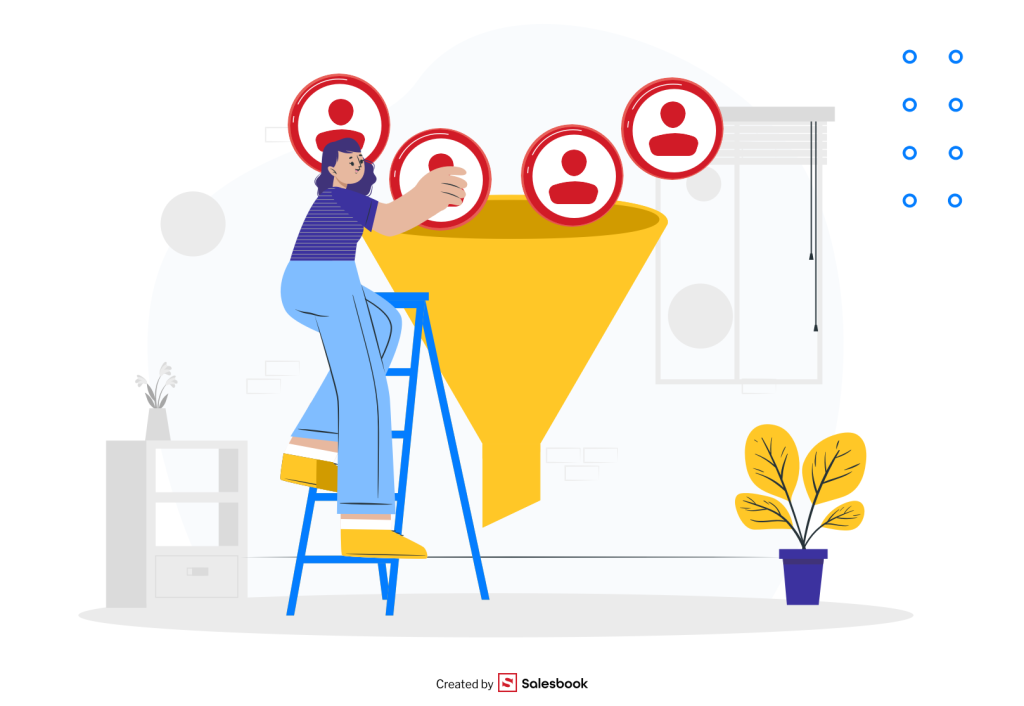
Salesbook, a powerful Sales Force Automation software, has been a game-changer in the world of sales management, garnering attention for its array of features and customer-centric approach. Let’s delve deeper into the functionalities of Salesbook, understanding its unique proposition and who stands to benefit the most from its implementation.
At the heart of Salesbook’s SFA software is its robust CRM system. It integrates all customer interactions into a single platform, allowing sales reps to nurture customer relationships effectively. The CRM solution presents a 360-degree view of customer data, providing real-time updates and valuable insights into customer behavior.
This CRM system aids in the entire sales process, from lead generation to conversion, by automatically tracking potential customers and moving them through the sales funnel. It streamlines sales tasks, eliminating tedious data entry, and other time-consuming tasks, thereby giving sales reps more time to focus on what they do best: closing deals.

Salesbook offers advanced sales forecasting AI-powered features that empower sales managers and teams to predict future sales performance based on historical data and current trends. This predictive analysis helps in resource planning, target setting, and opportunity management.
The use of such automation tools in the sales cycle allows for proactive decision-making and strategy planning.
Salesbook’s offer calculators represent a prime example of a sophisticated SFA tool, providing a streamlined and accurate method for creating sales proposals. This feature not only eliminates the tedious task of manual calculations but also enables sales reps to swiftly generate comprehensive, tailored offers, thereby enhancing efficiency and customer satisfaction.
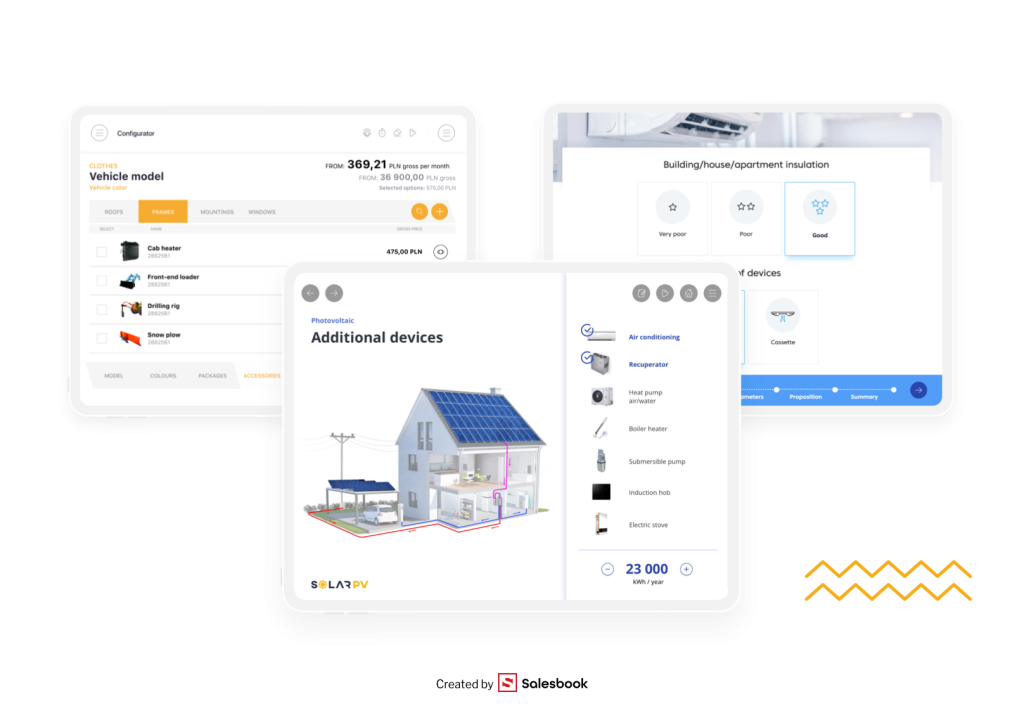
Salesbook’s Automatic Follow-up is a time-saving feature that facilitates seamless communication post-meeting. This tool sends an automatically generated summary of the meeting and order details to the customer, ensuring a consistent flow of information and helping to maintain positive customer relationships.
Several factors differentiate Salesbook in the crowded SFA software market. The tool is built to drive sales productivity while ensuring positive customer experience.
Its key selling point lies in the seamless integration of a plethora of features from task management to pipeline management, all presented in a user-friendly interface.
Salesbook not only works to boost sales productivity but also guarantees customer satisfaction, making it an essential asset for sales teams.
Furthermore, Salesbook is a versatile sales force automation tool that accommodates the needs of diverse businesses. It’s not just a CRM solution or a task manager; it’s an all-encompassing platform that adapts to the evolving demands of sales professionals.
Salesbook is designed for a broad spectrum of users. Whether you’re a sales rep dealing with qualified leads, a sales manager seeking an efficient way to track sales team members’ performance, or a business owner looking to automate the sales process, Salesbook can significantly elevate your sales management efforts.
It provides sales teams the tools they need to increase sales, manage customer relationships effectively, and deliver more value to their customers. Furthermore, Salesbook is a versatile tool that can be customized to meet the unique requirements of any business, making it a valuable asset for everyone involved in the sales cycle.
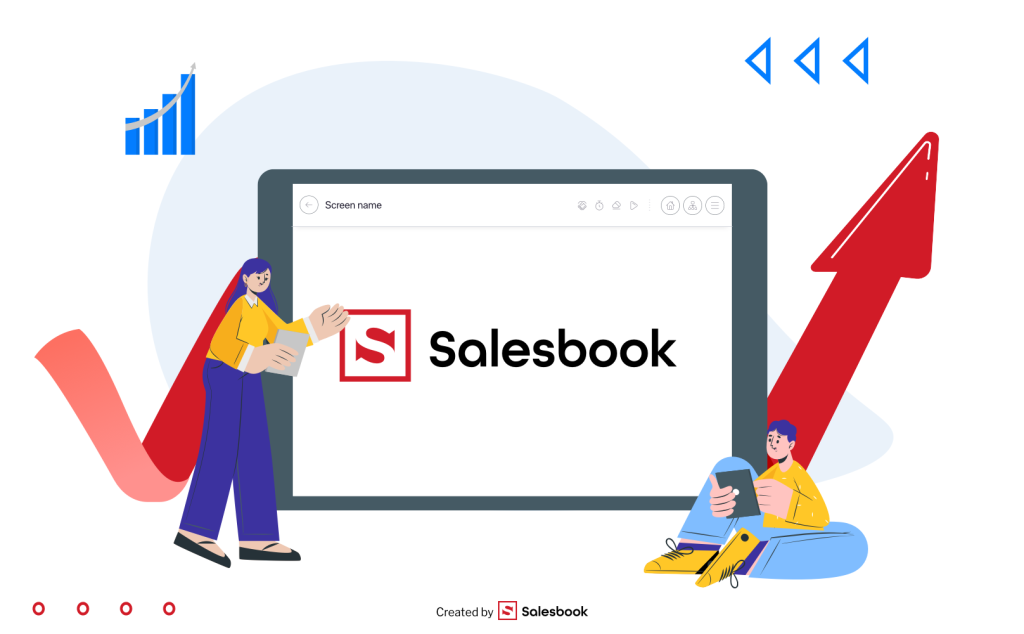
Salesbook, a comprehensive sales force automation software, plays an instrumental role in transforming the way sales teams operate. Its holistic approach to automating the sales process, enhancing sales productivity, and improving customer relationship management offers numerous advantages. Let’s go deeper into how Salesbook’s force automation can streamline your sales operations.
Salesbook’s sales force automation software is engineered to address all stages of the sales process, from lead generation to closing deals, and maintaining customer relationships. It helps sales teams to focus on their primary tasks, i.e., selling, while the software takes care of repetitive administrative duties.
Automating these tasks significantly increases sales productivity by allowing sales reps to use their time more efficiently. With the automated data entry, for example, sales reps can dedicate more time to engaging with potential customers and improving the sales pipeline rather than being bogged down with tedious manual tasks.
Furthermore, the CRM software within Salesbook allows for seamless customer relationship management. It offers an efficient way of tracking all customer interactions and using this data to create personalized experiences. This capability not only helps in retaining existing customers but also in acquiring new ones, thereby enhancing the overall sales force.

Salesbook’s efficiency as a sales force automation tool is demonstrated through various successful case studies.
Transforming its sales landscape, Kawasaki has ingeniously integrated Salesbook into its processes, arming their sales force with tablets equipped with the pre-configured application. Sales meetings have been reimagined as dynamic, interactive experiences where salespeople can instantly dispatch compelling electronic offers, enriched with vibrant multimedia content like images, videos, and digital brochures.
With the innovative integration of Salesbook, Kawasaki has not only revolutionized its sales operations but also observed a significant uptick in performance metrics. Impressively, the company has reported a robust 24% growth in sales, attributing this substantial surge to the enhanced customer engagement and streamlined processes facilitated by Salesbook.
“Thanks to Salesbook, managers have accurate and reliable information not only on sales meetings at our showrooms, but also on the number of test drives conducted and offers sent.”
Unum has brilliantly disrupted the insurance industry by equipping their Life Protection Advisors with an innovative tool – Salesbook configured tablets. These intuitive devices not only display the rich history and integrity of Unum but also allow advisors to engage with potential clients in a sophisticated and transparent manner.
Beginning with a captivating presentation of the company’s legacy, advisors then transition smoothly into a personalized exploration of the client’s needs, culminating in a bespoke, easily digestible insurance solution that truly resonates with the customer.
“Thanks to the new tool, it was possible to improve the client’s experience during a meeting, standardize the advisory process and implement mechanisms improving its quality”
You can find more case studies on the Salesbook website.
When it comes to demonstrating the effectiveness of Salesbook, the numbers tell the story. Organizations that adopted Salesbook reported an average increase up to 50% in sales efficiency. They also witnessed a marked improvement in their sales process, with a 65% increase in the speed of their sales cycle.
Furthermore, with the help of Salesbook’s sales automation software, these organizations saw up to 25% rise in their sales reps’ active selling time. These statistical indicators showcase Salesbook’s ability to streamline operations and significantly improve sales performance.
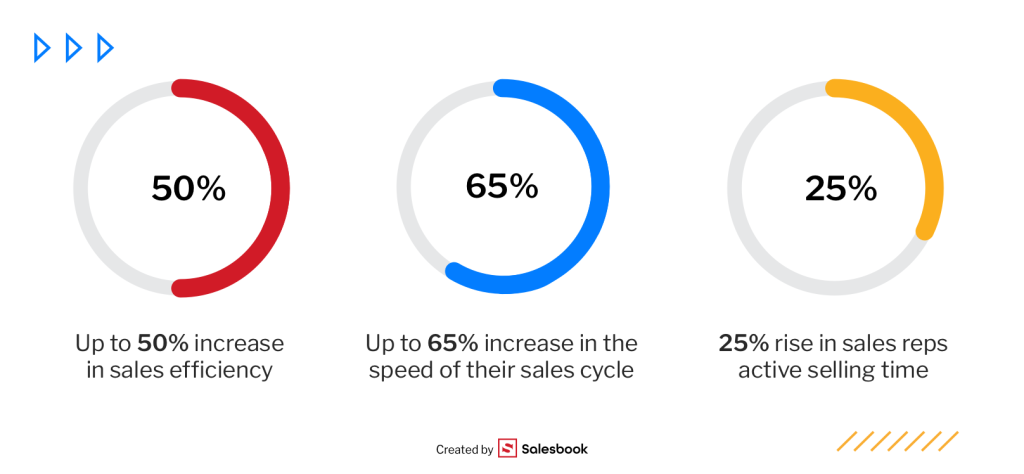
As powerful as Salesbook is in driving sales productivity and managing the sales process, the platform’s capabilities expand significantly when integrated with other tools. By leveraging API technology, Salesbook seamlessly merges with a variety of established CRM systems, marketing tools, and project management software.
Salesbook’s flexible design allows for effective integration with leading tools, each complementing and enhancing the platform’s sales force automation features.
These integrations substantially amplify Salesbook’s capabilities, creating a powerhouse of sales force automation.
Platform customization is crucial in the era of sales force automation. Every business has unique needs, and a one-size-fits-all approach may not yield the desired results. The ability to customize Salesbook through various integrations ensures that the platform suits your business’s specific needs.
Whether it’s enhancing the sales process, improving customer relationship management, streamlining administrative tasks, or boosting marketing efforts, Salesbook can be tailored to fit. This adaptability, along with its robust core features, positions Salesbook as a leading solution in sales force automation.
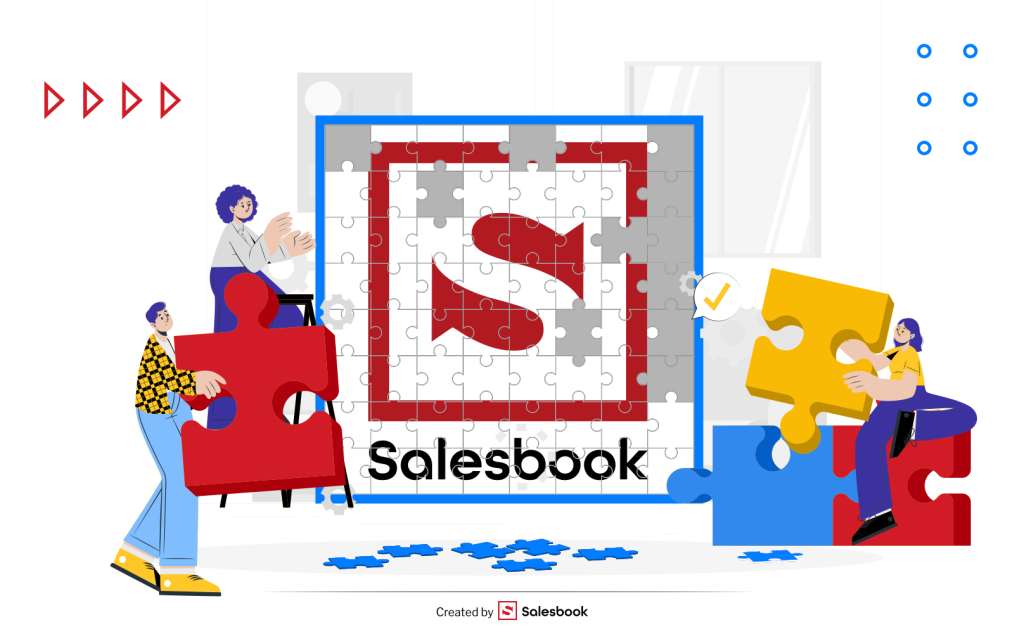
Sales force automation is more than just a convenience; it’s a strategic move to significantly improve sales performance. SFA tools like Salesbook streamline sales processes, automate repetitive tasks, manage sales teams more effectively, and provide insights into customer behavior. These features allow for improved customer interactions, increased sales, and, ultimately, a higher level of customer satisfaction.
It’s time to step into the future of sales force automation with Salesbook. Begin your journey towards increased sales productivity, streamlined sales processes, and improved customer relationships. Don’t let your business fall behind. Embrace the power of Salesbook and witness a revolutionary transformation in your sales operations.
SCHEDULE A FREE DEMO and let your business grow with support of the best SFA tool on the market!

Any questions? Feel free to contact us.
+44 203 807 0179
Our Customer Success Team is available from Mon. to Fri. 9am - 5pm CET.
We support inquiries, processes of configuration and use of Salesbook app, as well as billing and technical issues.
